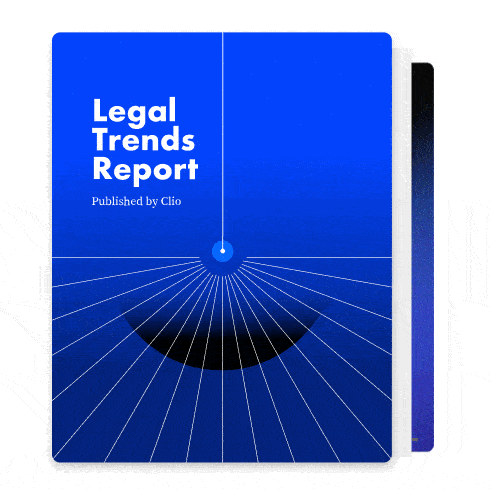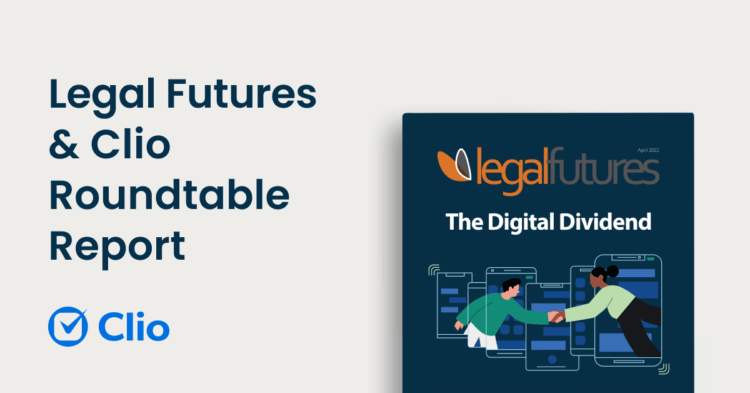You may already be aware of how legal technology is driving major changes in how law firms organise and manage their files, cases, and time—but legaltech can do so much more than make firms operate more efficiently. At Clio, we are on a mission to transform the legal experience for all. As part of that, we look for ways to increase access to justice and to ensure that the most vulnerable clients in society can have their legal needs met.
There is a wealth of research highlighting how gaps in legal service provision ensure clients who need legal services are not accessing them.
According to The Bar Council’s Access denied: The state of the justice system in England and Wales in 2022, 296 local authority areas and 533 parliamentary constituencies lack access to a local law centre. Half as many law firms offer criminal legal aid today compared to 2007.
As one lawyer surveyed put it, “We do all we can pro bono, we go for walks, we donate to Advocate. We prop the system up – which is not properly funded—as we can’t watch the system collapse. If we didn’t serve this funding, didn’t offer pro bono, the system would fall apart and funding from Government would be needed. But then lawyers would be blamed.”
While legaltech cannot and should not promise to be able to alleviate all challenges in closing the access to justice gaps in society—particularly those caused by funding challenges to legal aid and other societal and governmental programmes—there are ways that it can ensure greater access to justice for vulnerable clients.
Here are some examples of how Clio’s practice management and client relationship management software can assist in this area.
How Clio Software Improves Accessibility for Your Clients
Barriers to accessing legal services happen for many reasons, whether that be caused or influenced by age, education level, disability, race, income level, immigration status, or language. As such, there is no “one size fits all” legaltech solution for vulnerable clients. To really serve all legal clients, it is important that law firms discuss expectations and preferences with clients, as part of a client-centred focus and approach.
With that said, there are many features that come as standard with Clio that can be applicable to a lot of people.
Online intake forms and client onboarding
How is your firm currently engaging new and potential clients? While many law firms still use phone, email, or in-person meetings to conduct new client intake or to onboard new clients, there is a significant risk of clients falling through the cracks or dropping out of the legal process at this stage.
There are many reasons for this on both sides of the equation. The 2022 Legal Trends Report found that responsiveness is the joint second-most important factor for clients when choosing a firm to work with. However, research from our 2019 Legal Trends Report showed that while 89% of legal professionals surveyed said that they respond to phone and email inquiries within 24 hours, in actuality, many contacts are missed. Of 1,000 law firms contacted by a third-party research firm to test this claim:
- Only 40% responded to 500 emails sent by the research firm
- 56% of phone calls were answered by a person and 39% went to voicemail
- More than half of firms didn’t respond to their voicemails within 72 hours
On the client side, there can be good reasons why a person who needs legal representation cannot phone, email, or come to your office—or afford to wait for an answer. Those with certain disabilities, those who are in domestic violence situations where they cannot easily make a phone call or visit an office, and those who may be working in precarious job situations or providing family care may not have the ability to engage in those ways.
As such, offering online options, such as online contact forms or the ability to speak to a lawyer through a secure client portal (on desktop and mobile), both of which are available with Clio, gives clients more options to connect with your firm. By offering a range of ways for potential clients to get in contact, law firms can connect more with those who need them. Client onboarding can similarly be completed online, without the need for extensive follow-up calls or visits to the law firm office.
Video conferencing
While online video conferencing options such as Zoom or Microsoft saw massive adoption rates among law firms during the pandemic, as lockdowns lifted, many solicitors returned to in-office visits. However, continuing to offer the choice of video conferencing could help firms to connect with clients who may not otherwise engage in their services.
In addition to those who may not be able to secure time off for an in-person appointment or who have mobility issues that make travel difficult, those in more rural communities can be better served with video conferencing (provided they have a stable internet connection).
As highlighted by the Law Society of Ireland in 2021, many provincial towns in Ireland could be left without a practising solicitor by 2050. While that law society is providing substantial grants to help turn the tide, allowing both clients and lawyers to operate online and via video conferencing could mean a greater spread of representation and easier access to justice.
Mobile practice management
Video conferencing can be valuable for those clients who have access to a working computer/tablet/mobile phone and an internet connection. For those who don’t, however, finding ways to travel to meet particularly vulnerable clients can be difficult for lawyers who can only operate from their office. With a mobile practice management solution like Clio, however, lawyers and other legal professionals don’t need to be at a particular computer in order to work.
That means that lawyers can securely and efficiently work on the go, recording case details, checking calendars, and updating matter information. As such, those lawyers can travel to meet clients who cannot come to them, e.g. elderly, incarcerated, or vulnerable clients. This enables a better level of client care and that lawyers can meet vulnerable clients where the client feels most comfortable.
Reporting dashboards
The reality for many working with vulnerable clients on a pro-bono or non-profit basis is that being able to apply for relevant funding helps to keep them afloat and able to clients. Often, though, this requires collating a huge amount of data, which can put pressure on already stretched organisations.
With performance dashboards, like those offered with Clio Manage and Clio Grow, you can more easily and efficiently track where firm time is being spent; where there are expenses; where referrals are coming from; and more besides.
Legaltech and Vulnerable Clients: The Future
As the world continues to become more technology advanced, lawyers will need to take steps to ensure they keep reaching those who need their services most. Legaltech companies, like Clio, have a duty to enable this goal.
This free report, authored by Legal Futures with Clio, examines whether innovation and technology can save legal aid and access to justice. Featuring experts and practitioners working with vulnerable clients, including legal aid practitioners, advocates, and tech innovators, it looks at what the legal industry, the tech sector, and society and government can do to ensure access to justice.
We published this blog post in April 2022. Last updated: .
Categorized in: Technology
Explore AI insights in our latest report
Our latest Legal Trends Report explores the shifting attitudes toward AI in the legal profession and the opportunities it brings for law firm billing, marketing, and more.
Read the report



